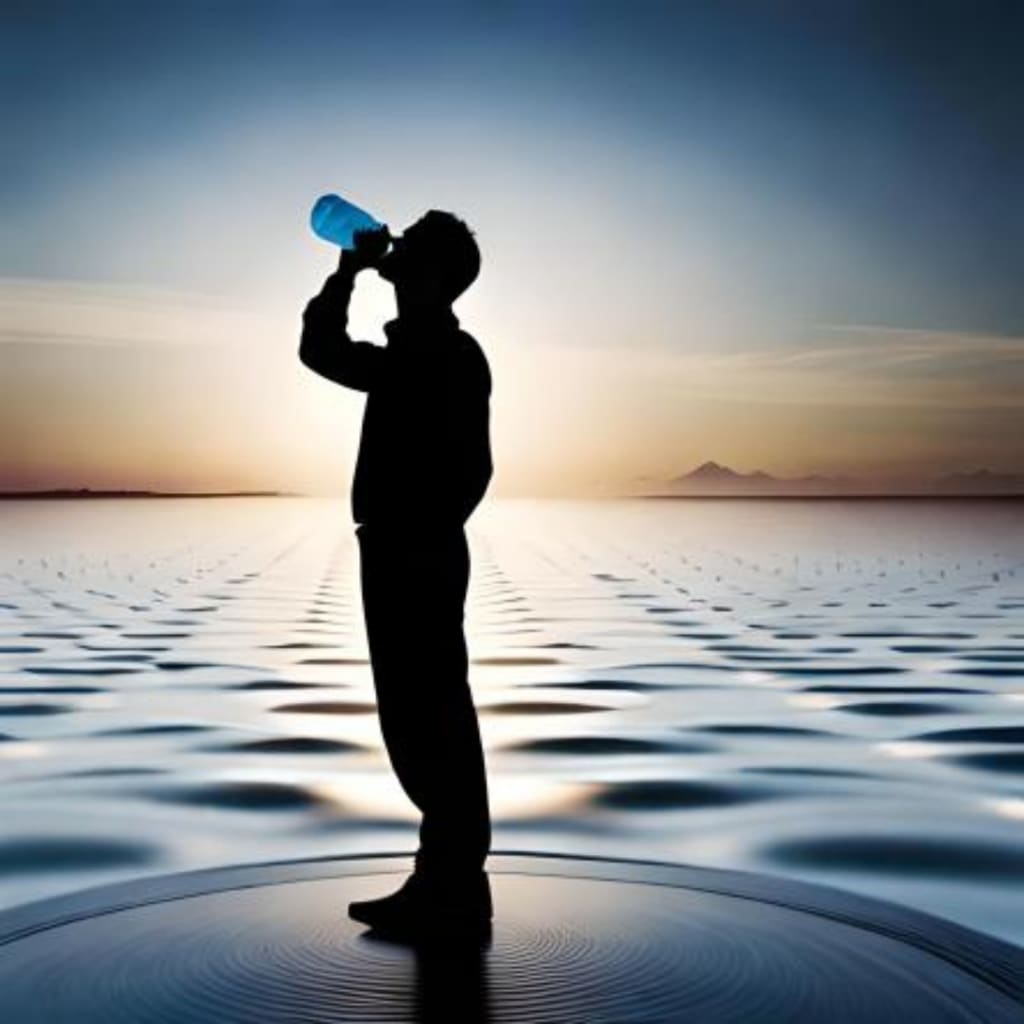Drinking too much water: Hidden danger of Water
Water Intoxication

Water is the elixir of life, an essential element that sustains all living organisms on Earth. From the tiniest microorganisms to the towering redwood trees, water is the cornerstone of existence. It comprises a significant portion of our bodies and plays a vital role in maintaining our overall health and well-being.
When we hear the word "poison," images of deadly substances like arsenic or cyanide may come to mind. However, few people realize that even something as pure and life-giving as water can turn dangerous if consumed excessively. In this article, we will delve into the often-overlooked topic of water intoxication, shedding light on its potential risks and providing insights on how to maintain a delicate balance when it comes to staying hydrated.
The Physiology of Hydration:
Water is not only the primary component of the fluids coursing through our veins but also the foundation of our cells, tissues, and organs. From aiding in digestion and nutrient absorption to regulating body temperature, water performs a myriad of essential functions. Our kidneys, acting as master filters, are responsible for removing excess water and waste from our bloodstream. This intricate system helps to maintain a delicate equilibrium, ensuring that our cells receive the right amount of water.
The Hidden Perils of Excessive Water Consumption:
While staying hydrated is crucial for our health, drinking too much water in a short span of time can lead to water intoxication, a condition with potentially severe consequences. When the intake of water surpasses the kidneys' processing capacity, the body's sodium solution becomes diluted. As a result, water floods into the cells to restore balance. While most cells can tolerate some swelling, the brain cells face a unique predicament. Enclosed within an unyielding skull, the brain swells, leading to an increase in pressure within the cranial cavity.
The Physiology of Water Balance:
Our kidneys play a crucial role in maintaining the body's water balance. They filter excess water and waste from our bloodstream, ensuring that our cells receive the right amount of water. Typically, our kidneys can process around 800 to 1,000 milliliters of water per hour. However, consuming more water than the kidneys can handle can lead to a dangerous condition known as water intoxication.
Understanding Water Intoxication:
Water intoxication, also referred to as water poisoning, occurs when an individual drinks excessive amounts of water in a short period. When this happens, the body's sodium solution becomes diluted, causing an influx of water into the cells to restore balance. While most cells can accommodate some swelling, the brain cells face a serious problem. Encased in an unyielding skull, the brain swells, leading to increased pressure within the head.
Symptoms and Risks:
The initial symptoms of water intoxication might be mild, such as headaches, confusion, and drowsiness. However, as the pressure inside the skull intensifies, the risks become more severe. Brain damage, coma, and even death are potential outcomes of untreated water intoxication. Tragically, in extreme cases, death can occur within a shockingly short span of fewer than 10 hours.
High-Risk Groups:
Though severe water intoxication is relatively rare, certain groups are more susceptible to its dangers. Individuals with pre-existing kidney issues face a higher risk due to their reduced ability to process water efficiently. Moreover, marathon runners are particularly vulnerable. Intense physical exertion and stress during a race can impair kidney function, leading to a build-up of water in the blood.
Prevention and Safety Measures:
Fortunately, staying safe from water intoxication is relatively simple. The average healthy adult requires approximately three to four liters of water per day to maintain proper hydration. Importantly, this includes water from various sources, including food and other beverages. It is essential to listen to your body's thirst signals and drink when you feel the need. However, once your thirst is quenched, it's equally important to stop drinking to avoid excessive intake.
Potomania: When Other Beverages Pose Risks:
Water is not the only beverage that can lead to water intoxication. Excessive consumption of beer, for example, can also cause a similar condition called potomania. The effects are similar to water intoxication, making it vital for individuals to moderate their drinking, whether it's water or any other fluid.
Conclusion:
Water intoxication serves as a stark reminder that even the most basic and essential elements of life must be consumed in moderation. While staying hydrated is crucial for overall well-being, understanding the limits of our body's water processing capacity is equally vital. By being mindful of our water intake and heeding our body's signals, we can ensure that we stay hydrated safely and maintain a healthy balance. Water is indeed life-giving, but it is our responsibility to respect its power and use it wisely.






Comments
There are no comments for this story
Be the first to respond and start the conversation.